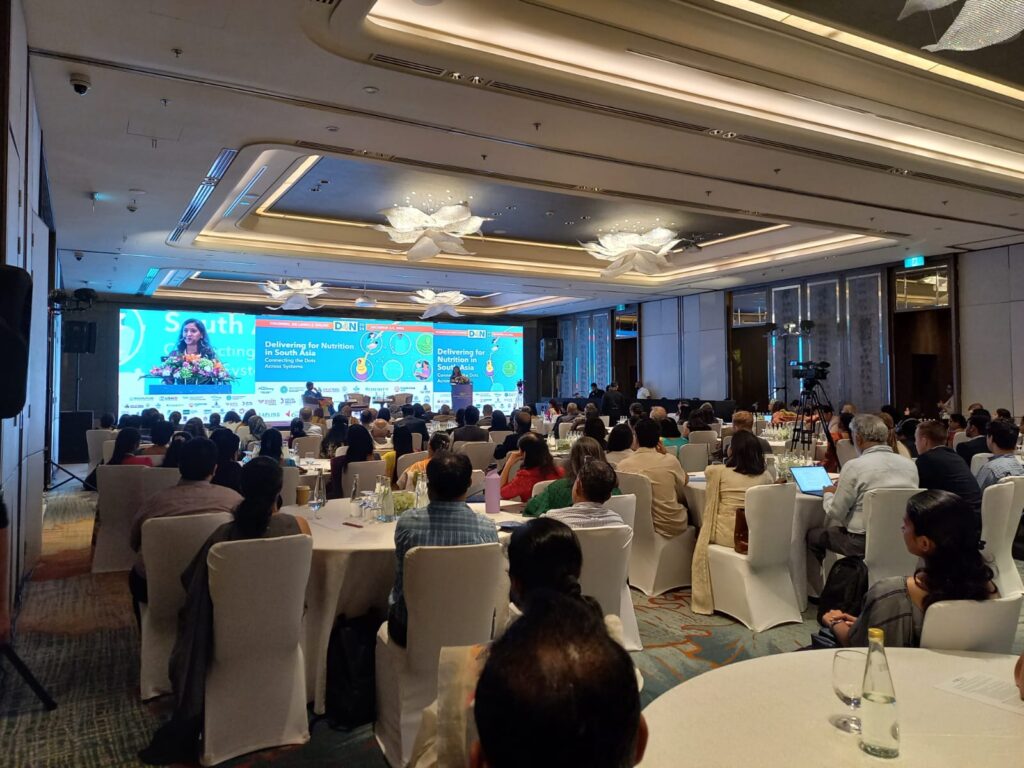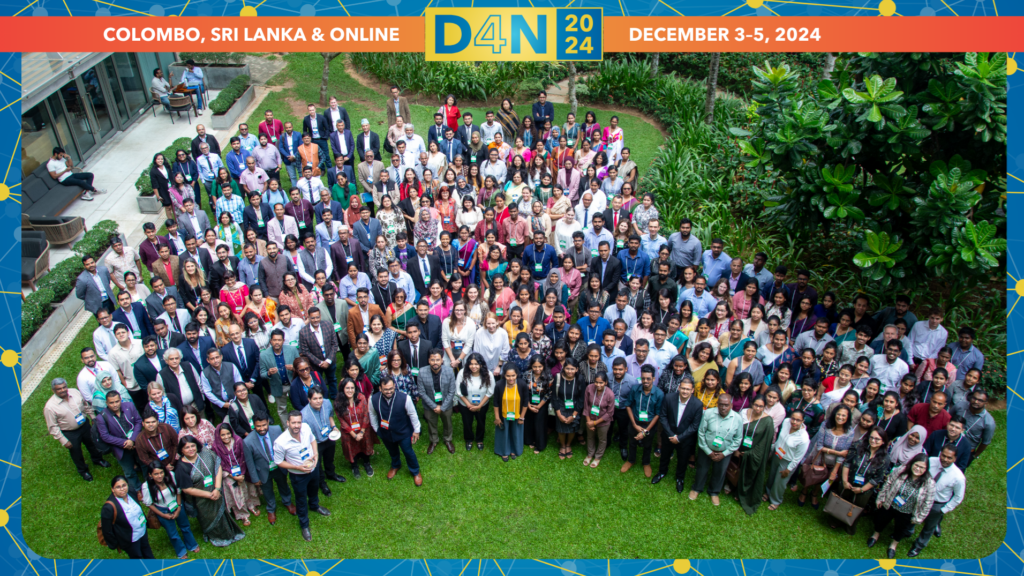By Mohammad Monirul Hasan, Foresight4Food FoSTr Bangladesh Facilitator
In December 2024, I had the privilege to participate in the Delivering for Nutrition (D4N) in South Asia: Connecting the Dots Across Systems conference, held in Colombo, Sri Lanka. This significant event, hosted by IFPRI in collaboration with CGIAR and regional partners, convened experts and stakeholders to tackle South Asia’s enduring nutrition challenges. Given the region’s double burden of malnutrition—persistent undernutrition alongside a surge in obesity and non-communicable diseases—the discussions underscored the urgent need for integrated, forward-thinking strategies to ensure sustainable nutrition security. Here are some of my insights from the conference.
Harnessing Foresight Research for Food Systems Transformation

At the conference, I had the privilege of presenting our research on foresight-driven food systems transformation and the Diet Scenario 2050 for Bangladesh, a project supported by Oxford University, Wageningen University & Research, and GAIN. Our research employs foresight methodologies to anticipate future food system trajectories and design actionable pathways toward nutrition security. By leveraging scenario-building and participatory modeling, we explore how household decision-making, agricultural innovations, and policy interventions can collectively enhance food system resilience.
The Crucial Role of Foresight in Addressing Nutrition Challenges
The conference highlighted foresight methodologies as crucial tools for anticipating emerging trends and informing adaptive policy responses. In dialogues with IFPRI’s Foresight Team and CGIAR’s Food Systems Hub representatives, we explored critical gaps in food systems research and discussed collaborative approaches to align foresight insights with policy and investment strategies. Our discussions identified opportunities for:
- Evidence-Based Policymaking: Using foresight outputs to inform national and regional policy frameworks.
- Scenario Analysis: Modeling climate impacts, dietary shifts, and technological advancements to guide policy development.
- Cross-Sector Collaboration: Engaging agriculture, health, and education sectors to build integrated solutions.
Regional Collaboration and Investment for Food Systems Transformation
The conference provided a unique platform for fostering regional partnerships. Through interactions with policymakers, development agencies, and investors, we identified actionable steps to promote cross-border foresight initiatives that can enhance food systems resilience across South Asia. Key takeaways included:
- Shared Learning Platforms: Promoting knowledge exchange across countries to address common nutrition challenges.
- Regional Investment Frameworks: Encouraging collaborative investments in sustainable food systems and nutrition programs.
- Public-Private Partnerships: Mobilizing resources from diverse sectors to scale impactful innovations.



Insights for Policy and Practice: Moving Forward with Foresight
Key lessons from the conference emphasized the transformative power of foresight for achieving sustainable nutrition outcomes:
- Anticipatory Governance: Foresight can help policymakers proactively address emerging risks and opportunities.
- Systems Thinking: Integrating health, agriculture, and socio-economic perspectives is crucial for holistic solutions.
- Multi-Sectoral Collaboration: Effective partnerships between governments, academia, and the private sector are essential for impactful interventions.
- Investment Alignment: Foresight insights can guide investors to support high-impact initiatives that promote nutrition security.
Conclusion: Shaping the Future of Food Systems in South Asia
This conference reinforced the value of foresight methodologies in driving evidence-based decisions and fostering regional cooperation. It provided a platform to showcase Bangladesh’s commitment to forward-looking strategies and collaborative approaches that address the interlinked challenges of nutrition, climate resilience, and food security. Building on these insights, I look forward to advancing partnerships and implementing foresight-driven initiatives that contribute to sustainable food systems transformation across South Asia.